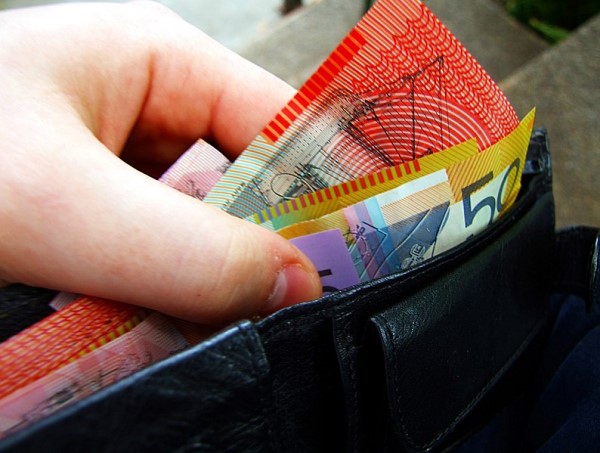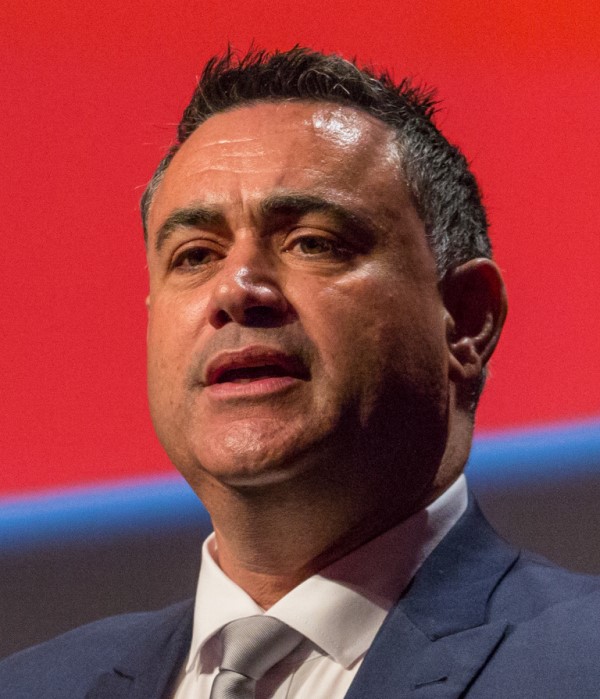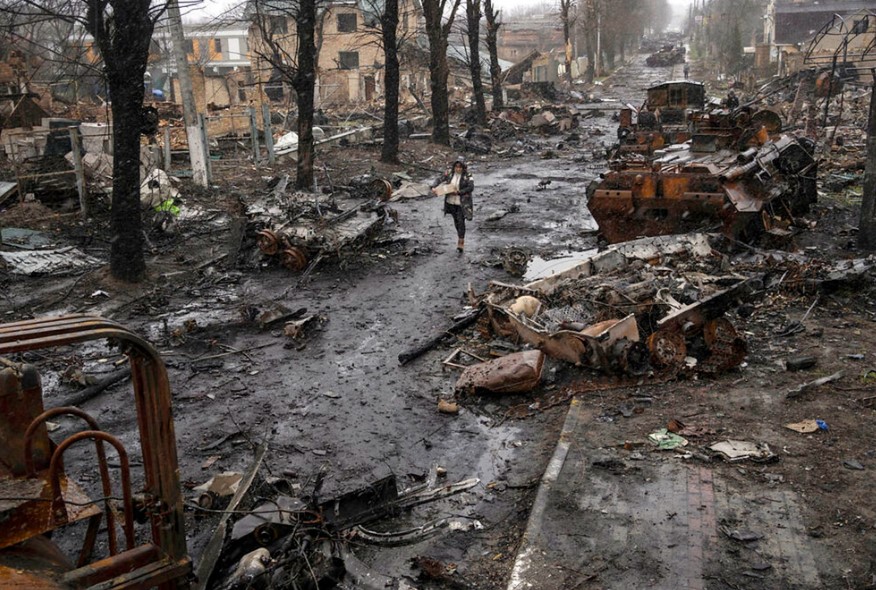Selected
- Details
- Written by Grant Broadcasters
- Category: Selected
- Hits: 229

Anthony Albanese's time as prime minister got off to a flying start. Literally.
Within hours of being officially sworn in as Australia's 31st prime minister alongside an interim cabinet, he was jet-setting to Tokyo to take part in the Quad Summit alongside leaders from the US, Japan and India.
The frenetic pace of his first few days in office would set the tone for his first 100 in the top job.
After spending 26 years in parliament, just six of them in government, Mr Albanese wasn't going to leave anything to chance.
"I want to remind you that you shouldn't waste a day in government," he told caucus colleagues after winning the election.
"We need to change the way politics operates in this country."
International trips would be a focal point of the prime minister's early weeks.
On the heels of his Japan trip, he was off to Indonesia for bilateral talks and "bicycle diplomacy" with President Joko Widodo.
Travel to Europe for the NATO summit would soon follow, along with a visit to war-torn Ukraine.
There was also time to repair Australia's relationship with France following the fallout from the AUKUS security pact and nuclear submarine deal, meeting with President Emmanuel Macron in Paris.
Sending a signal to regional leaders was the focus of a visit to Fiji for the Pacific Islands Forum.
Amid the globe-trotting, the prime minister was quick to point out Australia was back on the main stage in terms of climate change.
It was something he repeatedly highlighted not only to Pacific neighbours facing rising sea levels but other world leaders.
It's no surprise Mr Albanese used his first 100 days to elevate climate action, updating Australia's climate submission to the UN and passing its emissions reduction bill through the lower house during the first sitting fortnight.
Following the swearing in of his cabinet, which included 10 women - a record for a federal government - the PM looked to overhaul what he called a "decade of denial and delay" on the issue by the coalition.
Getting the Greens and crossbenchers to back laws to enshrine a 43 per cent reduction in emissions based on 2005 levels by 2030 was touted a major win.
Yet future negotiations with the Greens - who hold the balance of power in the Senate - will be among the challenges faced by the government, as it looks to implement its legislative agenda.
Meanwhile, it has already taken steps to scrap the cashless debit card, institute paid domestic and family violence leave, and reform the aged care sector.
Next cab off the rank will be setting up a national anti-corruption commission.
A bigger challenge, however, involves securing support for an Indigenous voice to parliament, which the prime minister hopes to implement by the end of the term.
Mr Albanese outlined at the Garma Festival a possible question for a referendum to enshrine the voice in the constitution, saying he wants support for the move to be as broad as possible.
The first 100 days haven't all been smooth sailing though. They were also dominated by cost of living woes, rising interest rates and inflation.
Mr Albanese has come under fire from the opposition for failing to show how he will cut power bills by $275 and drive down the cost of essentials.
In response, he has flagged the possibility of including measures in the October 25 budget.
Rising COVID cases from new sub-variants have also caused headaches, with the fledgling administration forced to backtrack on plans to scrap isolation payments for eligible workers.
Criticised also erupted among crossbench MPs after it was revealed they would be given fewer parliamentary staff than under the Morrison government.
Despite the controversies, though, the political honeymoon seems to be continuing for the bloke popularly known to supporters as Albo.
The latest Newspoll showed Labor ahead 56 to 44 on a two-party basis, while a Resolve Poll showed Mr Albanese leading 55 per cent to 17 per cent over Opposition Leader Peter Dutton as preferred prime minister.
The Newspoll also revealed Mr Albanese had a satisfaction level of 61 per cent, the highest for any incoming prime minister since the polls began.
A jobs and skills summit in the coming week will be an opportunity for him to make a flying start on economic reform over his next 100 days and beyond.
© AAP 2022
Image: Anthony Albanese Facebook
- Details
- Written by Grant Broadcasters
- Category: Selected
- Hits: 232

Rising cost of living pressures are forcing some Australians to live hand to mouth, some to take stock of their financial reserves and others to compromise on their dreams.
In spite of the inflationary bite, or perhaps because of it, many who can afford to are madly saving, according to consumer tracker Finder.
Research by the comparison site shows the average adult has $39,439 squirrelled away or enough to live on for 19 weeks should they lose their job today.
That's a 75 per cent increase on six months ago, with the amount trending up following four successive cash rate rises from the Reserve Bank.
Finder's money expert Sarah Megginson believes cash is king during a downturn.
"Australians are drastically increasing how much cash they have stashed to offset the spiralling cost of living," she says.
"Consumers are concerned that high levels of inflation and increasing interest rates will leave them vulnerable and where possible, they're stockpiling cash to weather the storm."
With high interest savings accounts offering rates of more than 3.10 per cent and term deposits even higher, the RBA lifting the cash rate to 1.85 per cent is bad for borrowers but good news for savers, especially blokes.
The research shows men, on average, have much bigger reserves than women: $52,786 compared to $26,132.
Putting money aside for a rainy day isn't atop everyone's personal finance strategy, however.
Of more than a thousand Australian adults surveyed on behalf of Money.com.au, 51 per cent reckoned they'd buy a new car within the next 18 months so long as they didn't have to wait for delivery.
Sales for July were more than 10 per cent below historical averages due to vehicle and component shortages, according to the Federal Chamber of Automotive Industries.
Yet 59 per cent of 18- to 34-year-olds said they would be willing to enter the market for a new set of wheels by 2024 in the absence of future supply chain issues.
In the same age group, 39 per cent said they would buy a used car if the waitlist for a new one was more than six months.
"While the choice to purchase a new vehicle is dependent on one's financial situation, savings and overall car usage, it is important to remember that it is a depreciating asset," says financial adviser Helen Baker.
"Younger Australians are likely more willing to purchase a used car for this reason, as they may not have the funds built up for a large purchase or are prioritising other purchases or investments, such as their first property."
On the long end of the scale, though, there are plenty of Australians doing it tougher.
Of a separate nationwide batch of a thousand Finder research subjects polled in June, nearly one in five (19 per cent) said they'd had a transaction declined at the counter in the past three months.
Eleven per cent have had to abandon a purchase after coming up short at the till and eight per cent have had to return some items to the shelf in order to pay for their shop.
Some 37 per cent rank groceries among their top three most stressful expenses.
Accordingly, more than one in three Australians experience food insecurity, according to the 2021 Foodbank Hunger Report.
Bill shock, low incomes, rent or mortgage payments and declining savings are the leading reasons.
Meanwhile, the soaring cost of living is also having an impact on Australia's skills shortage with a new survey revealing lowly paid electrical trades apprentices are being pushed to the brink of quitting.
Completion rates for young sparkies sit at 52 per cent, which according to the National Centre for Vocational Research, compares to 57 per cent for apprentices and trainees across all trades who started out in 2015.
The Electrical Trades Union's poll of 642 currently working electrical apprentices shows more than 37 per cent have already considered throwing it in.
A third nominated either low wages or living expenses as their main difficulty, saying their pay wasn't adequate to cover necessities such as food, travel and housing.
© AAP 2022
Image: https://commons.wikimedia.org/wiki/File:Australian_banknotes_in_wallet.jpg
- Details
- Written by Grant Broadcasters
- Category: Selected
- Hits: 222

Former NSW deputy premier John Barilaro has been charged over a scuffle with a freelance cameraman on Sydney's northern beaches earlier this year.
NSW Police on Friday served a future attendance of court notice for alleged assault and malicious damage offences on a 51-year-old man, via his legal representatives, they told AAP.
The former politician was involved in the altercation with freelance cameraman Matt Costello outside a bar in Manly on Saturday 23 July.
Footage circulated online shows the pair struggling as they grab and push one another while the man tries to film Mr Barilaro, who then walks away.
Mr Barilaro later confirmed the incident, saying he was confronted in the dark outside a bar and felt harassed during a night out with friends.
"To come out and have a camera shoved in your face. I'm a private citizen," he told 2GB in July.
"All I did was push a camera out of my way. I did not manhandle an individual."
Mr Barilaro is expected to appear at Manly Local Court on October 12.
© AAP 2022
Image: CeBIT Australia, CC BY 2.0 <https://creativecommons.org/licenses/by/2.0>, via Wikimedia Commons
- Details
- Written by Grant Broadcasters
- Category: Selected
- Hits: 233

New blasts have resounded in the Russian-annexed Crimea peninsula and a Russian missile hit a residential area of a southern Ukrainian town not far from a nuclear power station, wounding 12 civilians, Russian and Ukrainian officials say.
The strike at the Pivdennoukrainsk (south Ukraine) nuclear station and fresh shelling near the Zaporizhzhia station, Europe's largest such facility, heightened fears of a nuclear accident during the war, Ukrainian officials said.
In Crimea, Ukrainian territory seized and annexed by Russia during a 2014 incursion into Ukraine, the Russian-appointed governor not recognised by the West said a drone had struck a building near the headquarters of Russia's Black Sea Fleet on Saturday morning.
"A drone flew onto the roof. It was flying low," governor Mikhail Razvozhayev said on Telegram. "It was downed right over the Fleet headquarters. It fell on the roof and burned up. The attack failed."
Ukrainian media reported explosions in nearby towns - including the resorts of Yevpatoriya, Olenivka and Zaozyornoye.
Explosions and fires have struck Crimea in the past week -- including a blast at a Russian air base that appeared to destroy large numbers of aircraft according to satellite photos.
Ukrainian officials have made no comment. Analysts have said the attacks were made possible by new equipment used by the Ukrainian army and predicted more would occur.
Following the strike near the South Ukraine power station, Vitaliy Kim, governor of Mykolaiv region, said on Telegram that four children were among the wounded. Private homes and a five-storey apartment block were damaged in Voznesensk - 30 km from the plant, Ukraine's second largest.
The general prosecutor's office in Mykolaiv region, updating an earlier toll, said 12 civilians had been wounded.
State-run Energoatom, which manages all four Ukrainian nuclear energy generators, described the attack on Voznesensk as "another act of Russian nuclear terrorism".
"It is possible that this missile was aimed specifically at the Pivdennoukrainsk Nuclear Power Plant, which the Russian military tried to seize back at the beginning of March," Energoatom said in a statement.
Russia did not immediately respond to the accusation. Reuters was unable to verify the situation in Voznesensk. There were no reports of any damage to the South Ukraine plant.
Russia and Ukraine traded fresh accusations of shelling around the Zaporizhzhia station - held by Russia since March.
Vladimir Rogov, a Russia-appointed official in the nearby town of Enerhodar, said Ukrainian forces had launched at least four strikes on the plant. Yevhen Yetushenko, mayor of the Ukrainian-controlled Nikopol on the opposite bank of the Dnipro River, said Russian forces had repeatedly shelled the town.
Talks have been underway for more than a week to arrange for a visit to the plant by the UN nuclear power agency, the International Atomic Energy Agency.
Ukrainian authorities have called on the United Nations and other international organisations to force Russian forces to leave the Zaporizhzhia plant.
And in Mariupol, a town in eastern Ukraine controlled by Russia after weeks of shelling, officials said the new Russian-appointed mayor, Konstantin Ivashchenko, had survived an assassination attempt.
"It didn't work," Petro Andryushchenko, an official of the ousted city official, said on Telegram. "But this is only the beginning."
© RAW 2022
Image: manhhai/Flickr
Page 9 of 191